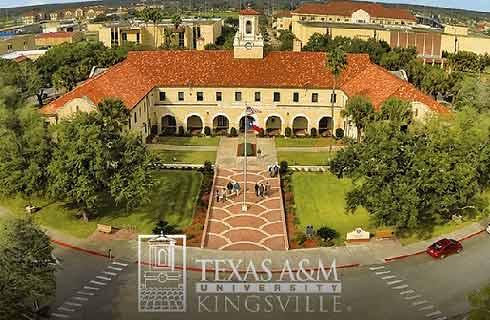- IDP China>
- 课程库>
- 自然科学>
- 自然资源与保护>
- 环境研究>
- Doctor of Philosophy in Forestry and Environmental Science in Anthropology
森林与环境科学人类学博士
Doctor of Philosophy in Forestry and Environmental Science in Anthropology

学历文凭
Double Major Degree

专业院系

开学时间

课程时长

课程学费

国际学生入学条件
A Bachelor's degree (or equivalent) prior to matriculation at Yale.Applicants who are applying for a Ph.D. in Architecture, Forestry and Environmental Studies, Investigative Medicine, Law, Management, Music, Nursing, or Public Health, a M.S. in Public Health, or a M.A. Music should use this application to apply for admission.Applicants who are applying for any other type of degree at one of the University's professional schools (Art, Architecture, Divinity, Drama, Forestry and Environmental Studies, Law, Management, Medicine, Music, Nursing, and Public Health) should visit that school's website for further instructions, as those degree options have separate admissions policies, processes, and are administered by the professional school independently.
IDP—雅思考试联合主办方

雅思考试总分
6.0
- 雅思总分:6
- 托福网考总分:60
- 托福笔试总分:160
- 其他语言考试:NA
CRICOS代码:
申请截止日期: 请与IDP联系 以获取详细信息。
课程简介
The combined Forestry and Environmental Studies (F&ES)/Anthropology Ph.D. Program was first created by former Yale Provost Alison Richard to meet the needs of doctoral students in biological anthropology who wanted to draw more fully on the resources of both the Anthropology Department and F&ES. Initial interest in the combined degree has mainly come from students working in the allied fields of ecological anthropology, social ecology, and political ecology. We envisage this program, however, as open to all sub-disciplines in Anthropology – including biological anthropology and archaeological studies – and students across forestry and environmental sciences fields who wish to combine their studies with Anthropology. The purpose and attraction of the degree is three-fold: (1) it combines the disciplinary identity and strengths of the Anthropology Department with the inter-disciplinary character and possibilities of F&ES, especially in terms of bridging the social and natural sciences, (2) it combines the strengths in ecological and environmental studies of F&ES with the social science strengths of the Anthropology Department, and (3) it combines the Anthropology Department's strengths in theory with the emphasis within F&ES on linking theory with policy and practice. The combined doctoral degree offers its graduates great flexibility when entering the marketplace: they can represent themselves as anthropologists and/or environmental scientists, as theoreticians and/or practitioners. They have the credentials to apply for policy-oriented positions with international institutions as well as academic positions in teaching and research. The academic program of each student in the combined degree program is to some extent tailored specifically to his or her particular history, interests, and needs, but there are general guidelines that combined students can be expected to follow, and they are laid out here.
相关申请
 预科
预科 奖学金
奖学金 实习机会
实习机会 在校学习
在校学习 跨境学习
跨境学习 校园授课-线上开始
校园授课-线上开始 在线/远程学习
在线/远程学习
开学时间&学费
学费信息仅供参考,请与IDP联系以获取详细信息
| 开学时间 | 时长 | 学费 | 地点 |
|---|
学校排名

世界排名8
数据源:
泰晤士高等教育世界大学排名
关于耶鲁大学

常年全美,甚至世界前三的排名对于这所已经300多岁的大学来说早已是过眼浮云。美国建校最早的三所大学中,哈佛大学注重和闻名于研究生教育,威廉玛丽学院闻名于本科生教育,只有耶鲁是研究与本科文理并重。在学生眼里:耶鲁就是没有竞争,没有臭架子,不用想着处处都要胜人一筹的“哈佛”。时至今日,耶鲁已泰然走进自己的第四个百年,其追求的目标也早已不局限于教育本土年轻人,而是为全世界培养优秀的人才。招收国际生的历史在耶鲁已经持续了将近200年,国际化的教学议题也已融入各个专业的教学大纲超百年。这不仅仅使得教学的深度与广度得以最大限度的延伸和扩张,更让合格的耶鲁毕业生能够在全世界任何角落完美展现自己的能力。耶鲁的录取政策对有不同宗教信仰的学生一视同仁,最最重要的是你的个人风格。每年众多的申请者中,只有不到20%的人SAT单项低于700分。相信这20%的人中有相当一部分成为了耶鲁7%录取率背后的牺牲品。不过但凡你被录取,那么你至少有50%的几率拿到奖学金!!
本校相关课程

西班牙语和葡萄牙语哲学博士
学历文凭
Ph.D.
开学日期
课程费用总额


社会学哲学博士
学历文凭
Ph.D.
开学日期
课程费用总额


俄罗斯文学与文化哲学博士
学历文凭
Ph.D.
开学日期
课程费用总额


文艺复兴研究哲学博士
学历文凭
Ph.D.
开学日期
课程费用总额


心理学哲学博士
学历文凭
Ph.D.
开学日期
课程费用总额


政治学哲学博士
学历文凭
Ph.D.
开学日期
课程费用总额

其他相关课程

Environmental Pollution and Management PhD
 布莱顿大学
布莱顿大学泰晤士高等教育世界大学排名:755
学历文凭
Ph.D.
开学日期
课程费用总额


环境与商业(荣誉)文学士学位
 利兹大学
利兹大学泰晤士高等教育世界大学排名:118
学历文凭
Bachelor Degree with Honours
开学日期
课程费用总额


哲学博士(可持续资源管理)
 纽卡斯尔大学
纽卡斯尔大学学历文凭
Ph.D.
开学日期
课程费用总额


MSc Environmental Sustainability
 爱丁堡龙比亚大学
爱丁堡龙比亚大学泰晤士高等教育世界大学排名:645
学历文凭
Masters Degree (Taught)
开学日期
课程费用总额


野生动物科学学士学位(荣誉学位)
 昆士兰大学
昆士兰大学泰晤士高等教育世界大学排名:80
学历文凭
Bachelor Degree with Honours
开学日期
课程费用总额


理学硕士淡水环境综合管理
 伦敦玛丽女王大学
伦敦玛丽女王大学泰晤士高等教育世界大学排名:135
学历文凭
Masters Degree (Taught)
开学日期
课程费用总额










 美国
美国